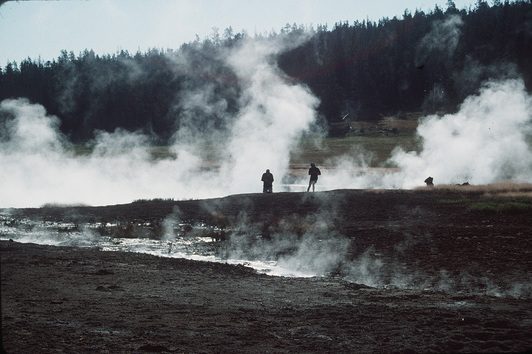Collect microbes to study the Microbial tree of life!
It is vital to understand where microbes come from and how they interact with their specific environments so that we can better conserve these respective areas and their resources. Microbes play an important role performing ‘ecosystem services’, which are critical to every environment yet usually go unnoticed by the microbes’ co-inhabitants. Even scientists who study particular regions for plants and/or wildlife, for example, are often unaware of the microbial processes taking place all around them. Without microbes, no one and nothing would be alive.
Gaining a better understanding of the microbial processes that underlay any environment will in turn help us to better manage that environment. Perhaps a new discovery or a window into how the Earth’s elements are cycled will result one day! Regardless, new data will be instrumental in our understanding of the earth’s environments from a holistic viewpoint and thus, will prove important in the conservation and preservation of regions, habitats and species.
Gaining a better understanding of the microbial processes that underlay any environment will in turn help us to better manage that environment. Perhaps a new discovery or a window into how the Earth’s elements are cycled will result one day! Regardless, new data will be instrumental in our understanding of the earth’s environments from a holistic viewpoint and thus, will prove important in the conservation and preservation of regions, habitats and species.
How Can You Participate?
Adventurers going caving, canyoneering, high-altitude mountaineering, surfing or hiking in a variety of extreme environments can contribute to this project.
Educated volunteers are needed to help study the microbes present in unique environments, whether a water ecosystem, a desert, a high-altitude mountain, or a polar or cave region. All of these places contain microbes. Finding out what lives there, and what we can learn from them, is paramount. Volunteers will need to photograph the areas, aseptically (sterilely) collect samples, preserve the samples accordingly, and transport the materials back to the laboratory. |
How will this data be used?
Data will be used to help us understand new species and fill in the tree of life. This will add to our knowledge about species persisting in extreme environments and what factors allow them to endure. This information will inform management decisions and protect fragile environments.
|

